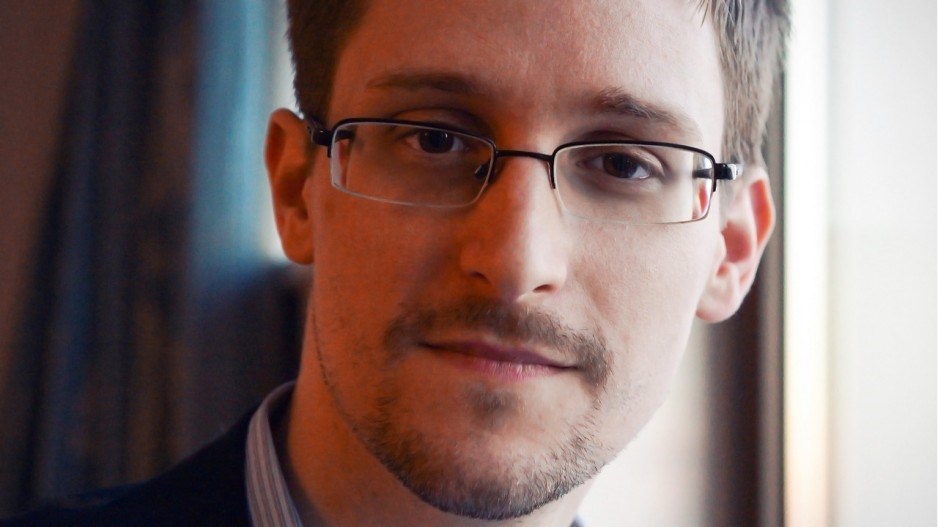Like most tech wizards, Edward Snowden says he’s more of a night person.
But the famed U.S. whistleblower was pushing that stereotype to its outer limits Tuesday (April 5) when he addressed a Vancouver audience via live-stream from Russia, where it was about 5:20 a.m. local time.
“I actually haven’t slept yet,” he told moderator and CBC journalist Laura Lynch during an evening event hosted by Simon Fraser University (SFU).
Snowden, whose head blanketed a giant screen over the stage at the Queen Elizabeth Theatre, touched on everything from the Panama Papers leak to Bill C-51 (now the Anti-Terrorism Act, 2015) throughout his hour-plus-long session.
And while his imposing presence in front of the enthusiastic crowd may have elicited thoughts of George Orwell’s 1984, the former NSA contractor who leaked classified documents in 2013 took a hard stance against governments watching over its citizens.
“If we don’t have privacy, we don’t have sanctity for our own lives,” he said.
With the so-called Panama Papers — the largest data leak in history, linking public officials to offshore shell companies to help avoid taxes — dominating the news this week, Snowden seemed to confirm the person who leaked the data has not been in touch with him.
“If they had [been in contact] I could not say one way or another because that would be inappropriate. But for the record, no they haven’t,” he said.
“In fact, I think that’s a very good decision because I’m probably under a lot more monitoring than the average journalist.”
Snowden said the release of the Panama Papers shows the role of the whistleblower in a free society has become not only desirable but also vital.
“The most privileged and powerful members of society are operating by a different set of rules,” he said.
“And yet [they’re] the ones that benefit most from the structures of our society.”
Snowden also praised Tuesday’s announcement from the Facebook-owned (NASDAQ:FB) WhatsApp messaging service that it would begin offering end-to-end encryption for all its users.
"They’ve protected, in one move, 1 bilion people’s communication," he said.
But Snowden still had critical words for targeted online ads used by social media giants like Facebook.
Targeted ads rely on metadata — or as Snowden calls it, “a perfect record of a private life” — to learn about users’ personal information such as age, sex and buying habits collected through online activity and other means.
He pointed out that advertisers did not have access to metadata when ads began rolling on TV sets. Even still, he said, those advertisements still proved effective.
“We can comprehend an Internet where ads are less profitable…but still effective,” he said.
Snowden also provided the audience a laundry list of ways they could protect their privacy online, free of cost.
He recommended downloading the Signal app to make encrypted phone calls and send encrypted messages, using a password manager to protect against “podunk” websites that reveal members’ sensitive information if hacked, and browsing online with the Tor Browser, which allows people to voluntarily mix their communication with everyone else’s to make it harder for intelligence agencies to target people.
Panellist and B.C. Civil Liberties Association (BCCLA) policy director Micheal Vonn also quizzed Snowden about his own thoughts of Bill C-51, which has now passed into law as the Anti-Terrorism Act 2015.
When it was pointed out that the BCCLA’s freedom-of-information requests indicated Canadian intelligence agents did not ask Ottawa for the broad new powers the Act provides, Snowden noted U.S. intelligence agencies have teams of lawyers dedicated to picking apart foreign laws to see if exceptions could be made for surveillance purposes.
“It’s about broadening that [shared intelligence] bucket and making sure we can put more Canadian information in that shared bucket so it’s more easily shared.”
@reporton



